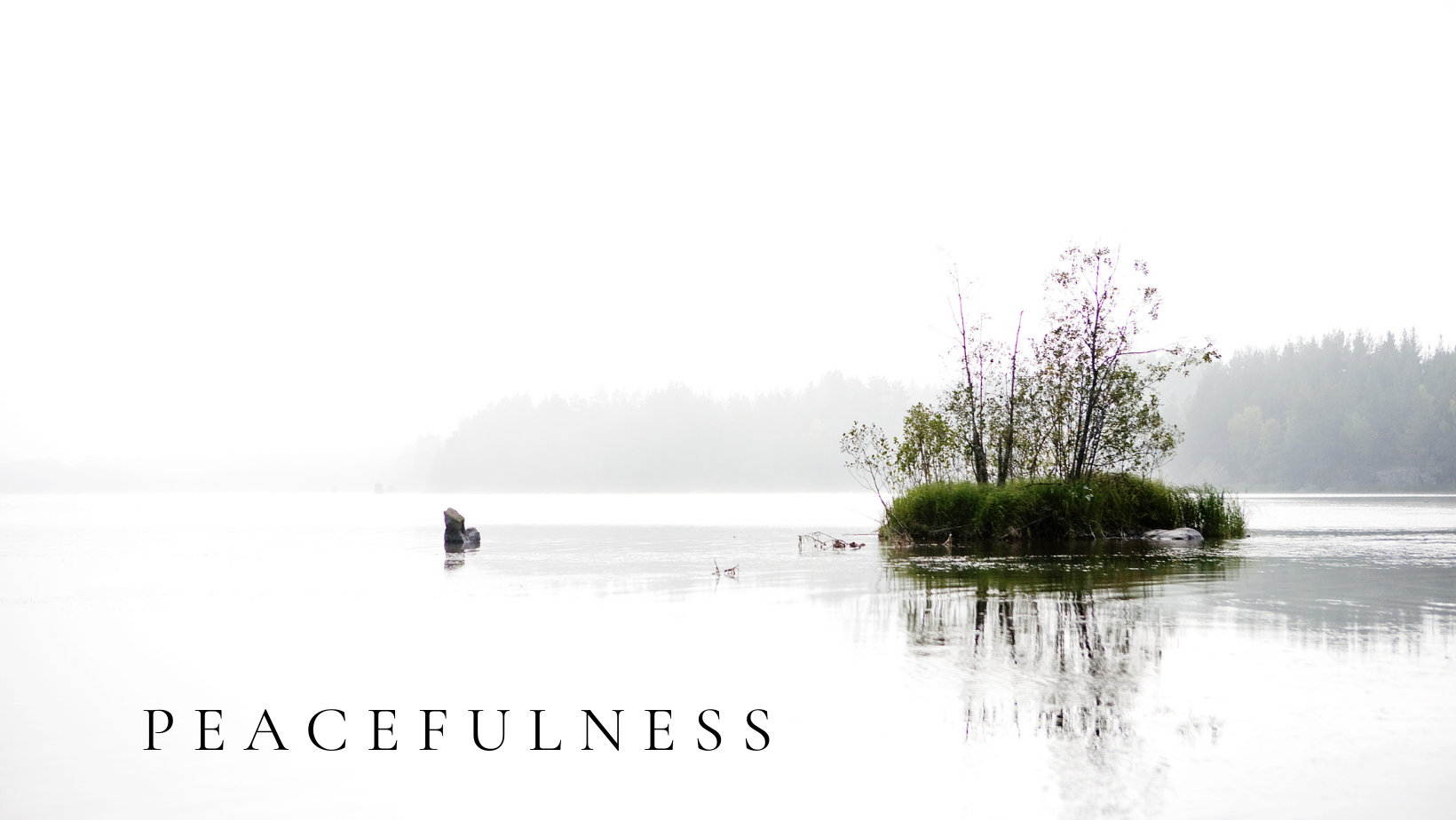Where do you find deep, internal, restful peace? Is it a place or a person? What makes the place or person peaceful? Where does peace originate, and what is its nature? Is it contingent upon outside factors? Is it sustainable? Does it sustain you?
Peace is an important factor, if not the top priority in our lives. We crave it every one of the 52 busy weeks, every year that goes by. We dream of it, imagining lush vacations. We fight for it, spend money on it, stay up late for it, strategizing our rest so that we can continue with work. We hope for peace, even when it seems unachievable. Some of us spend our days waging peace upon our different contexts and in our spheres of influence. It is an engrossing pursuit. So how do we access real peace? I ask this with open eyes, recognizing that our present cultural moment appears profoundly discouraging. There are wars on every level of our existence, and I think it’s safe to say that we have no lasting peace among ourselves in spite of our consuming pursuit of it.
Though it is a driving, primal desire, I have been seriously conflicted about the legitimacy of my own search for peace. A life-long Christian, I lived for a long time making a partition between selfish, or private peace and unselfish, or public peace. I didn’t understand how I could seek true, peaceful rest for myself in a way that didn’t contradict the Christian call to serve others and be a peace-maker. I constantly found myself completely filling weeks and months with social engagements, volunteer and church activities, and family obligations. I had this desperate feeling that people needed me and I couldn’t disappoint them, while a tornado raged in my interior world. I would contain the chaos until it threatened to break out, and then I’d disappear from my own life for a while to cope. There was a lot of shame in this pattern. Still I made no real effort to understand my desire for inner peace, believing instead that Christ’s call to die to oneself, be self-sacrificial, and serve others equalled denying myself the pursuit of personal fulfillment. I hoped that one day my practice of serving others would metabolize into personal fulfillment and well-being. But instead, I grew to resent the deprivation. My constant lack made me angry. I felt I lacked reciprocated care, credit, praise, fulfilled desires and most of all I felt I lacked time.
This perspective on internal peace was particularly troubling because eventually I found it impossible to believe that God was good. Why would a good God who supposedly loved me so much that he sent part of himself to walk in my nature—a God who took the trouble to show me that he knows exactly what I’m going through—not want me to feel peace and fulfillment? Why would there be a gap there, in that place where the fire is supposed to burn to fuel my life? Some days it feels like I’ll never get the answer I want. Other days I’m full of hope that my eyes will be opened to more than I could ever imagine. In the journey of these disparate days I keep coming back to Jesus: fully God and fully human, walking day by day toward unimaginable pain, in intimate relationship with the Father, and giving weary, lacking, ill-at-ease people his peace and rest. “I am leaving you with a gift—peace of mind and heart. And the peace I give is a gift the world cannot give. So don’t be troubled or afraid.” (John 14:27)
We know that there was a price for that gift, as there always is when we pursue one thing forsaking all others. Jesus wept and struggled to fulfill his purpose. He loved people to their core, healing them, eating and drinking with them, and sometimes telling them what they didn’t want to hear. He also went away from his community regularly to be alone. This is where another price was paid. It’s one I keenly feel during this time in my life. When you go away to be alone, people have questions for you. They have opinions and needs. They wait in expectation for you to come back. There are always people and they always need. But Jesus, with his laser-focused purpose, gained strength and peace from his Father in solitude. He wasn’t deterred from his rest by the unending need of the people around him. He didn’t fear disappointing them. He knew that the time with his Father-- the All-Knowing, the Self-Sufficient, the Faithful, the Holy God-- provided vital, real sustenance. It was shalom, total well-being. This is the living water he offers. “He told me everything I ever did!”, the Samaritan woman said to her fractured community in John 4:39. A whole village was transformed by Jesus’ shalom, his gift of living water to an outcast living with debilitating shame. He knew her completely and gave her shalom, as he was given it by his Father. I may have doubts about the power of this living water in my own life, but I have to give it a chance. Because if it is true then my rest will fill me, sustain me, fit me, transform me and go beyond me. It won’t be something that troubles me or makes me feel like I need to be someone else for this relationship to work. God knows me as he knew the woman by the well, and I can trust that he will sustain me when I find him in solitude. I can trust that the peace I find in communion with him will be a transformative gift, just like Jesus said it would be.








Leave a Comment